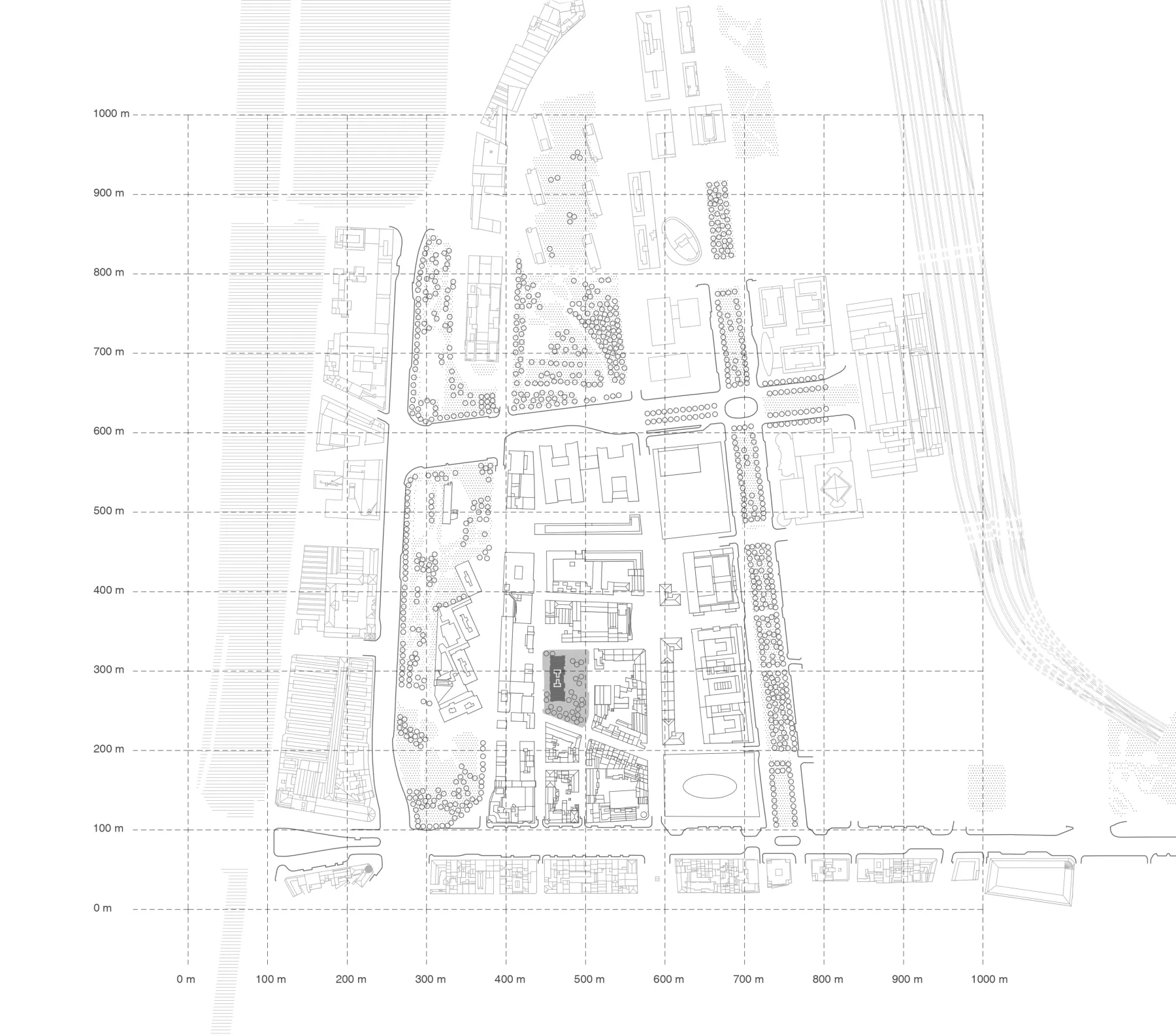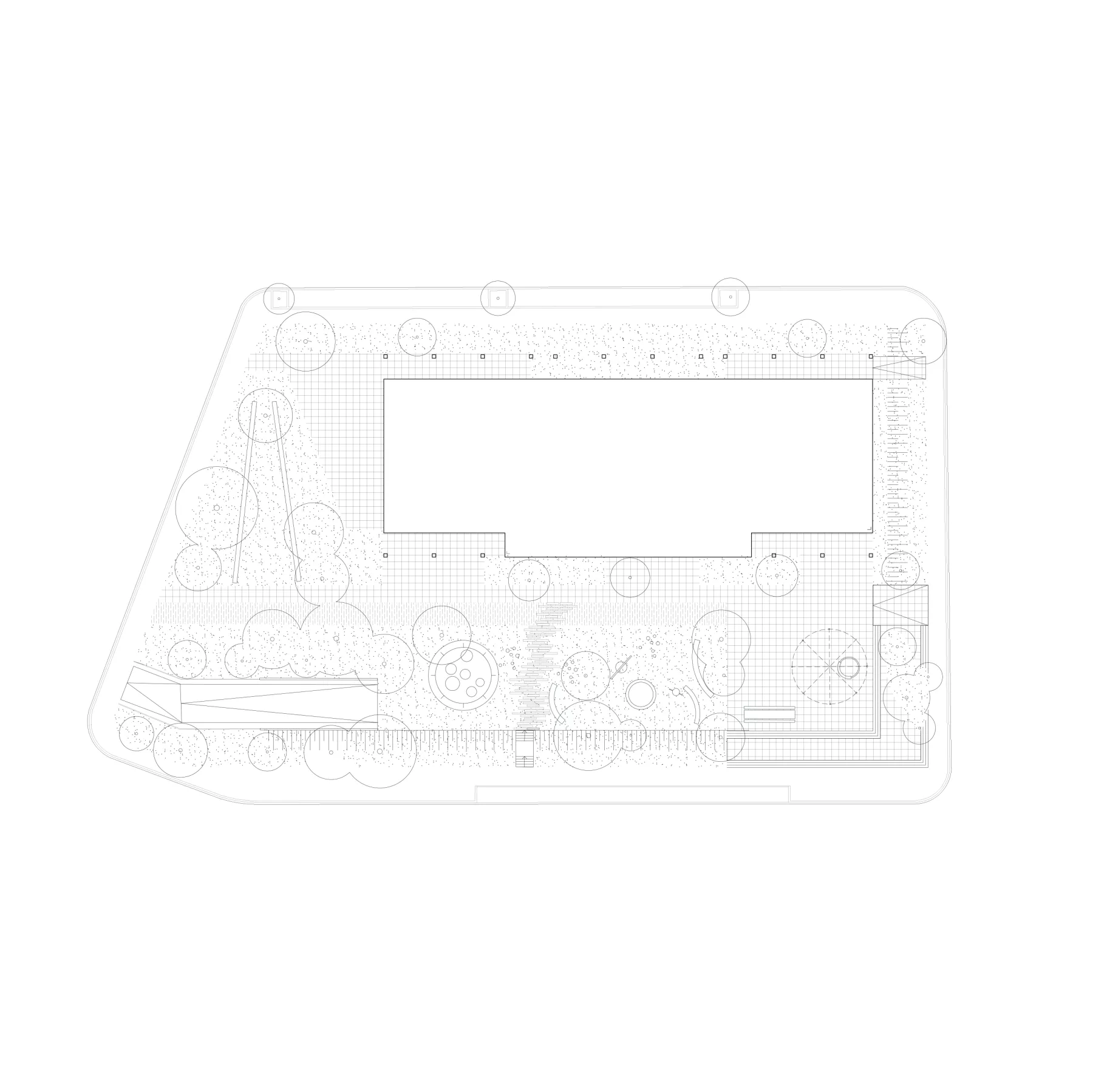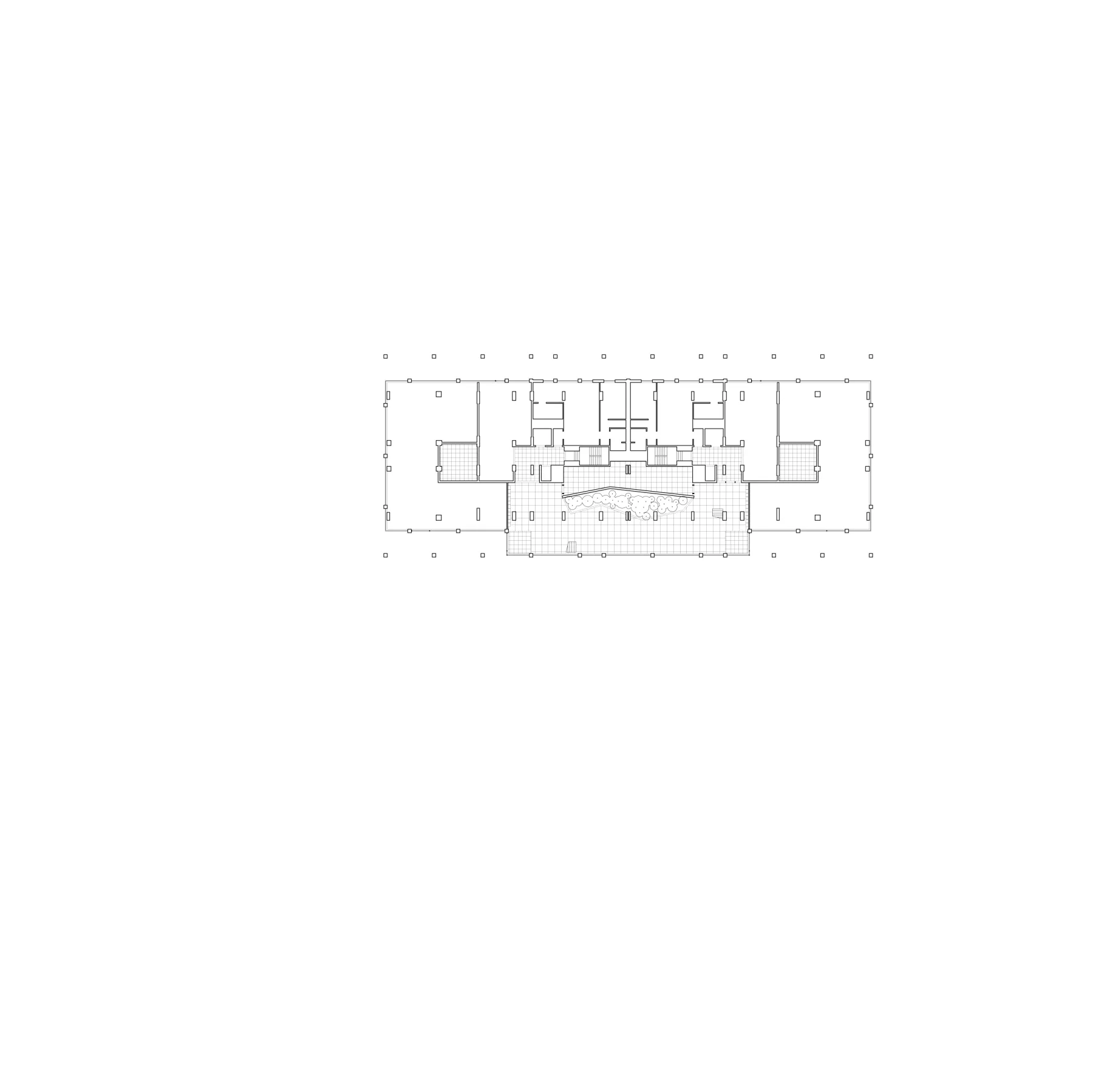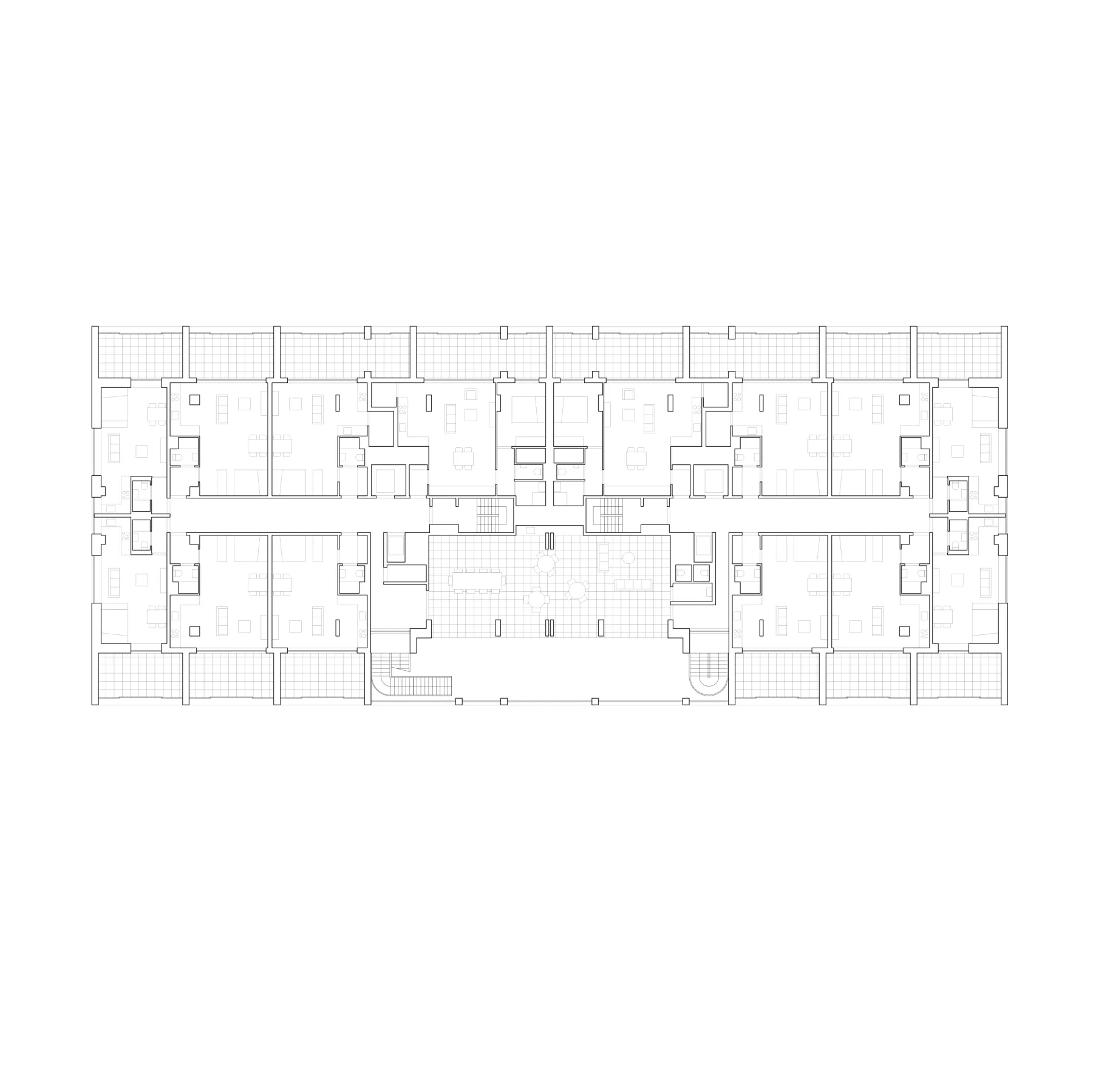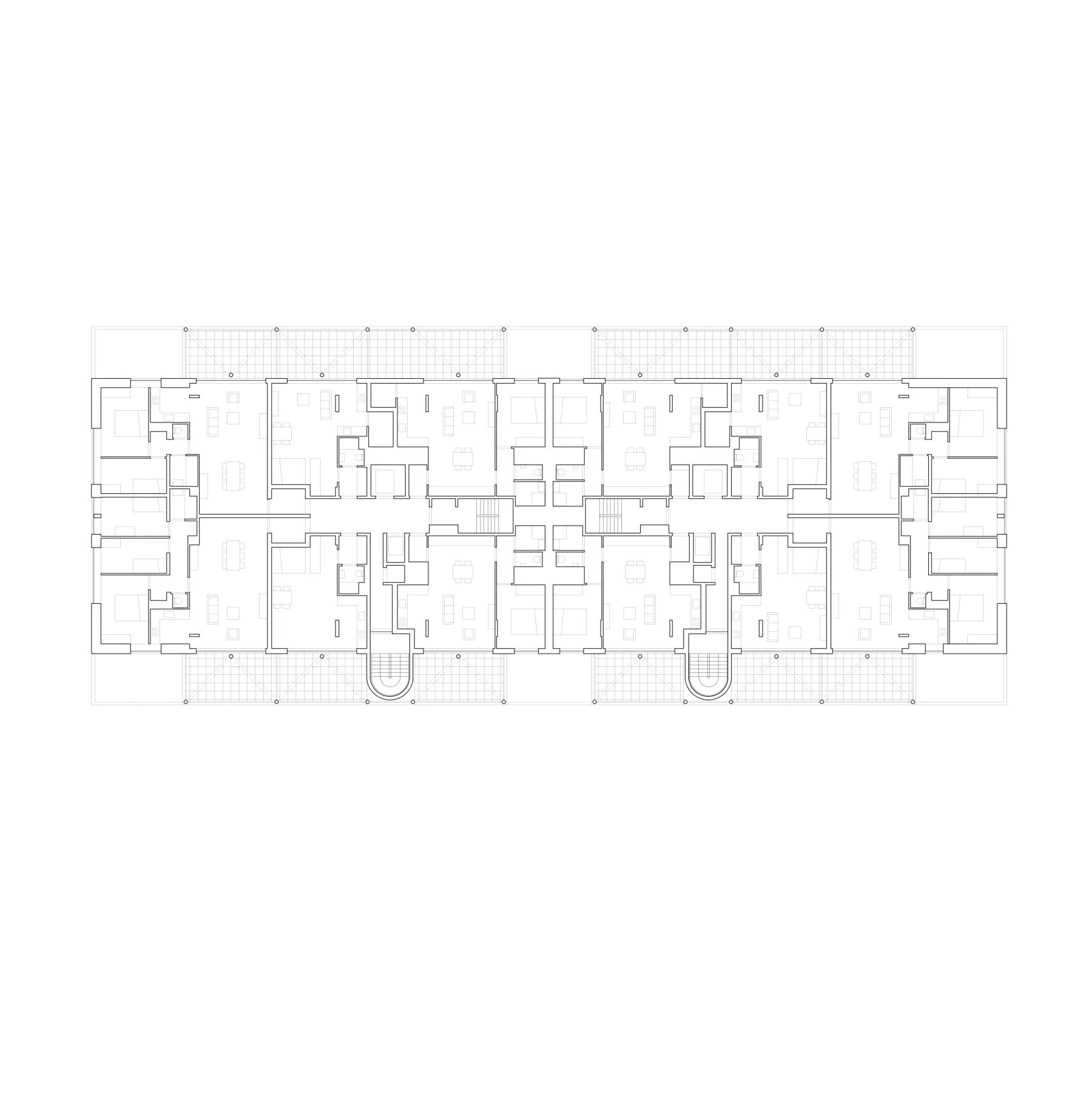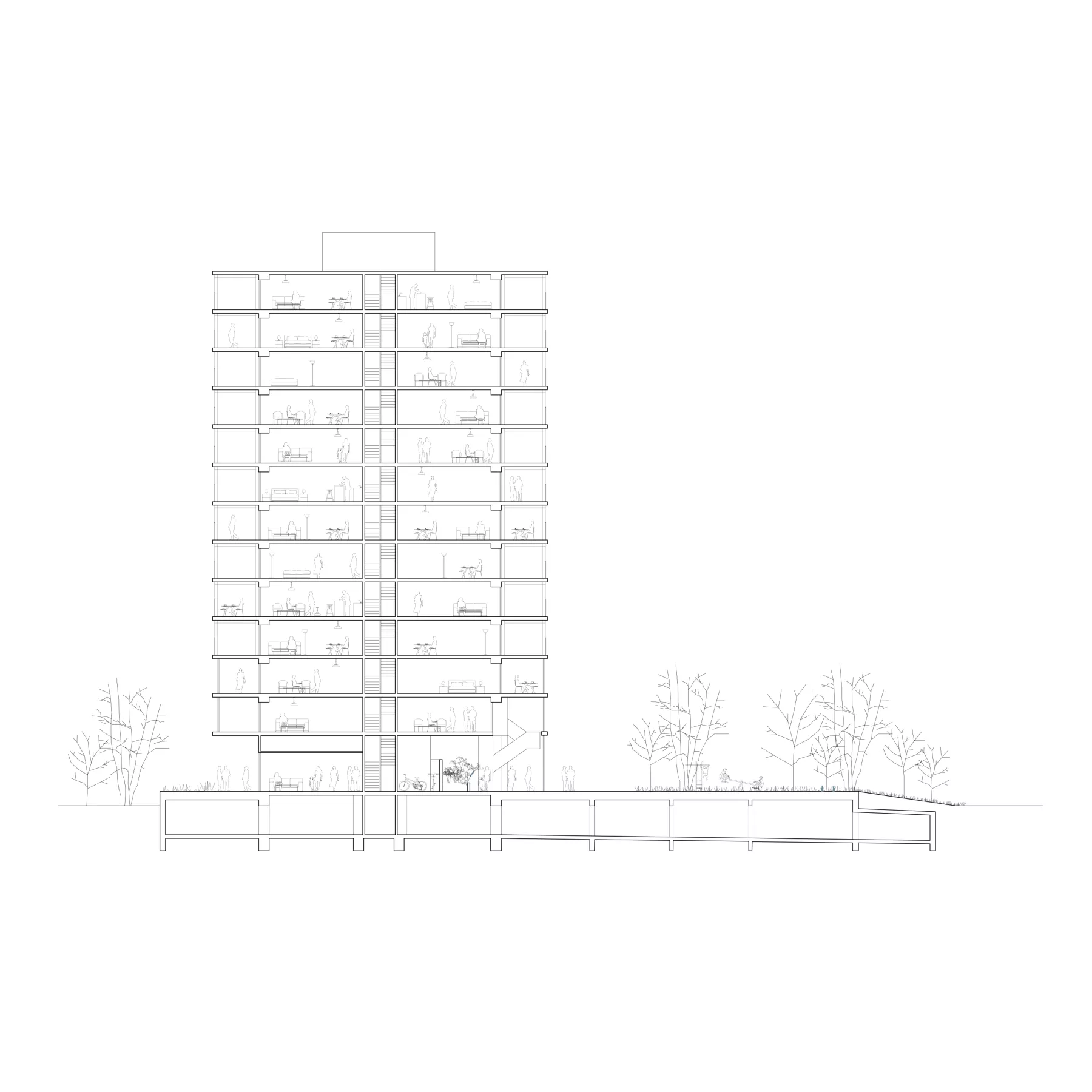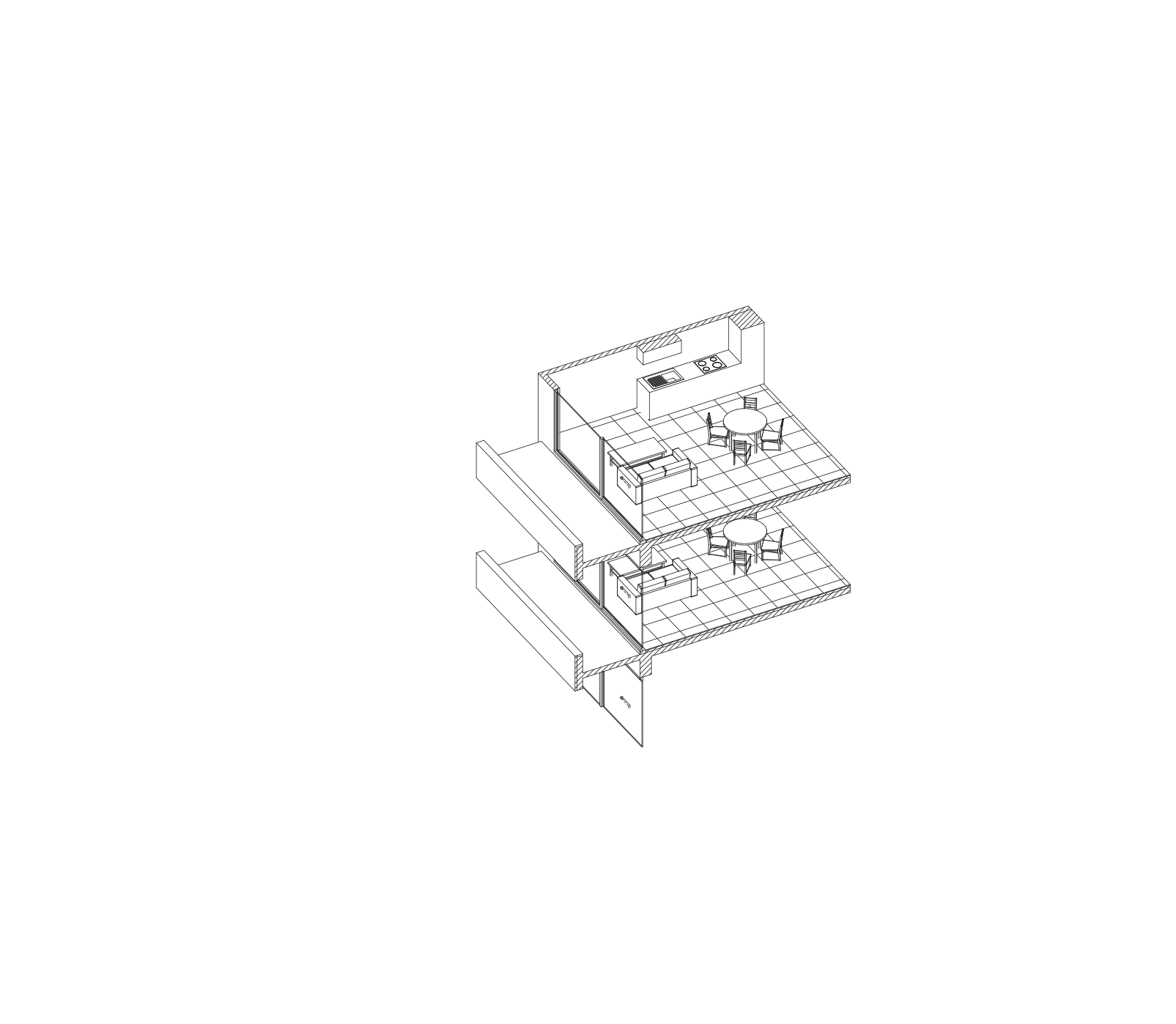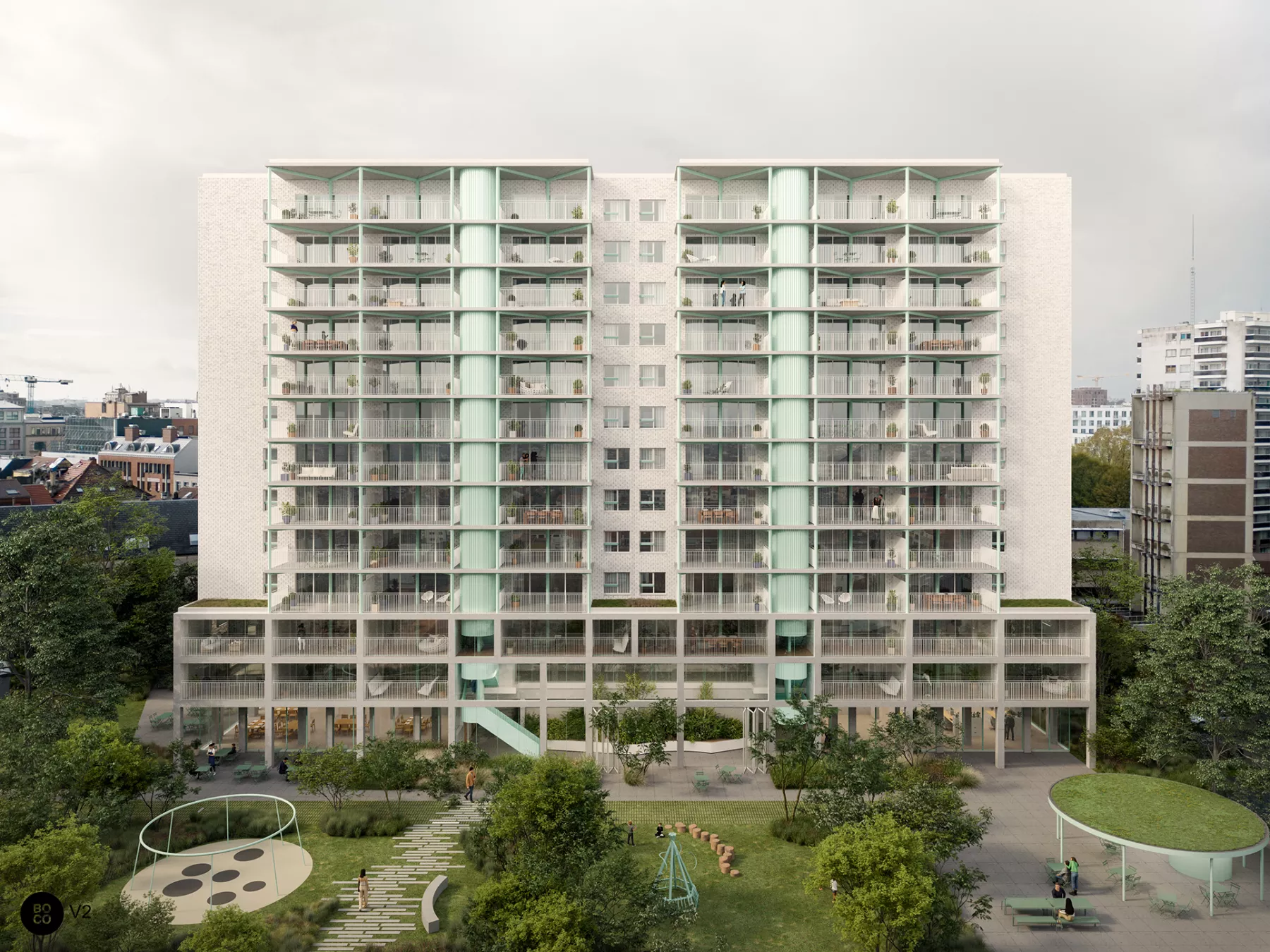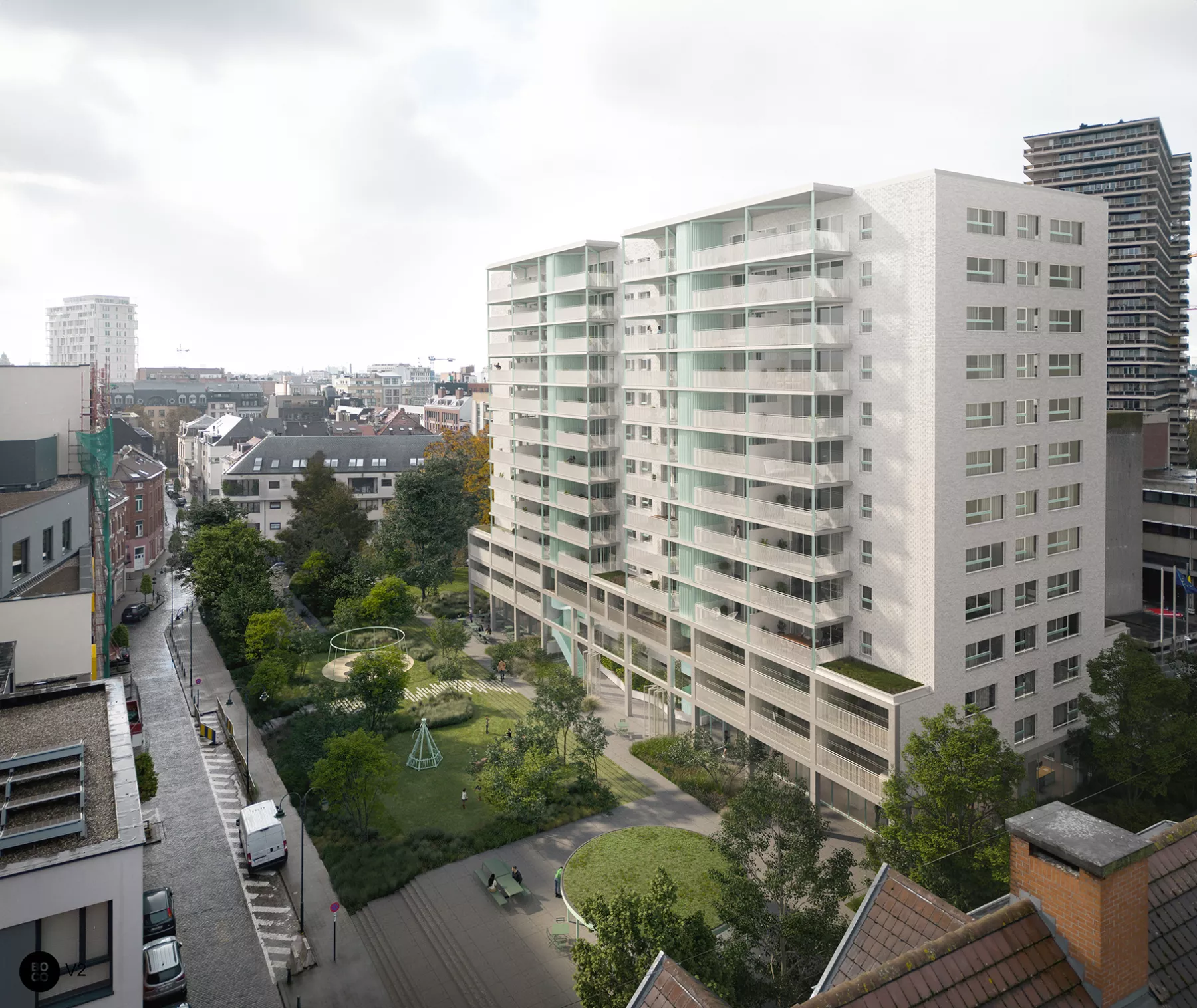- Location
1000 Brussels
Belgium
- Type
-
- Landscape
- Renovation
- Social housing
- Year
- 2023-...
- Type of procurment
- public
- Status
- 1rst price competition
- Collaboration
a2o architecten, Ontwerpatelier, BOCO studio
Flèche - Renovation of 152 social housing.
The project focuses on renovating the Flèche site and its associated building, a typical example of Brussels' social housing architecture from the 1970s. Positioned strategically within Brussels' urban grid, the project aims to establish a distinctive identity for the building that harmonizes with its surroundings.
By removing existing obstacles like low walls, stairs, bushes, and slopes, and creating large visual openings, we are taking an initial step towards integrating the project into the urban context. Central to this effort are gradual transitions, restoring the relationship between private and public spaces, and enhancing the legibility and accessibility of the area. The square located near the building's entrance, will be transformed into an inviting green space featuring a children's playground and a small square with steps and a long picnic table, fostering a sense of community and openness in the neighborhood.
In the building, the ground floor is transformed into a contiguous landscaped area where the exterior seamlessly blends with the interior. This fusion is facilitated by consistent flooring and greenery that stretches from the public space to the winter garden at the entrance, establishing a cohesive transition. Sunlit terraces and communal amenities situated at the building's corners animate the plaza, rendering it not only accessible but also inviting, fostering engagement with the neighborhood and enhancing community vitality.
Consideration for the living environment is central to our project, with each decision grounded in a balance between daily comfort and adherence to legal standards. To accomplish this, we have introduced several innovative features aimed at fostering a harmonious living environment.
One such innovation involves the incorporation of terraces as additional rooms. This new architectural element consisting of concrete slabs within a steel frame for the building transcends mere functionality, serving as a reflection that imbues the entire structure with a fresh identity. This approach enhances the architectural and visual coherence of the project.
